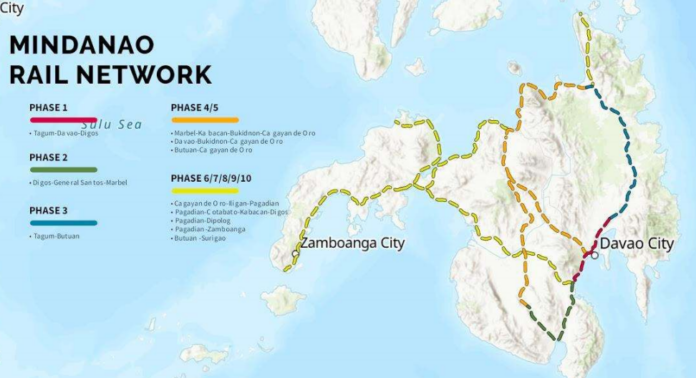The Department of Transportation (DOTr) on Wednesday ruled out looking immediately west of Malacanang as source of sub-market loans or official development assistance (ODA) for the Mindanao Railway Project that China has apparently abandoned.
“Wala na siguro. We’re talking to other possible official development assistance partners” to fund the project, Transportation Secretary Jaime Bautista said.
He said there had been no real development for quite a while since the Chinese government initially agreed to fund the Mindanao Rail Project.
The government under then President Rodrigo Duterte canceled the flagship program after requests for the release of funds from China Export Import Bank remained unattended.
The P83-billion Mindanao Railway Project: Tagum-Davao-Digos segment of the Mindanao Railway, is expected to reduce travel time from Tagum City, Davao del Norte to Digos City, Davao del Sur from 3.5 hours to 1.3 hours once it starts operations.
The other Chinese-funded projects that have yet to be implemented include the P142-billion Philippine National Railways South Long Haul Project and the P 51-billion Subic-Clark Railway Project.
The DOTr in January 2022 signed a P142-billion contract with Chinese companies to build the first 380 kilometers of the Philippine National Railway Bicol Project from Banlic, Calamba to Daraga, Albay.
The agency through former Transportation Secretary Arthur Tugade signed the design-build contract with the joint venture of China Railway Group Ltd., China Railway No. 3 Engineering Group Co. Ltd. and China Railway Engineering Consulting Group Co. Ltd. The agreement covers the design, construction and electromechanical works of the project.
The first 380 kilometers of PNR Bicol from Banlic, Calamba to Daraga, Albay will span 39 cities and municipalities, four provinces and two regions. It will involve the construction of 23 stations, 230 bridges, 10 passenger tunnels and a 70-hectare depot in San Pablo, Laguna.
The P51 billion Subic-Clark Railway Project, on the other hand, will cut the travel time between Clark in northern Pampanga province and Manila from two to three hours by bus to one hour by train, with a maximum rail speed of up to 160 kilometers (km) per hour.
Transport officials have since told legislators in a public inquiry that they plan to seek guidance from the policy-making NEDA Board should China’s patent disinterest persist until December this year. The NEDA Board is chaired by the secretary for Socio-economic Planning Arsenio Balisacan.
The board counts among its members the governor of the Bangko Sentral ng Pilipinas as ex-officio member. By law, all foreign loans whether commercial or concessional require prior BSP approval.
Potential sources of ODA funds the government may opt as alternative source of funding include the Manila-based Asian Development Bank (ADB) or the Japan International Cooperation Agency (JICA).
The government could opt to tap the World Bank for funding as well.







